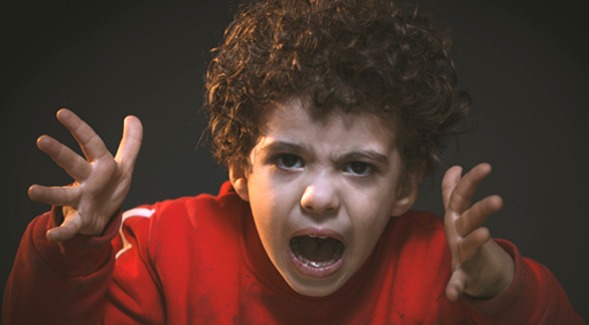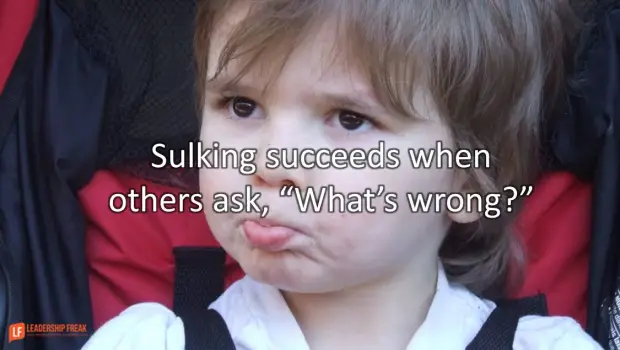What’s with the long face ? I asked Bumpy aka my 11 yr old son ..But all I got as an answer was one of that deadly sulking look … So now as a parent what would be your response ? I am sure that as you are reading you are also reminded of such instances with your child, aren’t you ??
So let me introduce you to the 3 of the most annoying ways that our kids communicate their displeasure, anger, or frustration with a situation or people around them …Angry Face, Whining, and Sulking !!



This behaviour is not just limited to young children, teens do it too because they haven’t always learned the skills to express their frustration in an appropriate way. Simply put: it works for them.
When kids or even teens walk around the house in a huff in order to get their way, that means someone—probably one or both parents—is still reacting to it.But know this: if you start blaming, accusing, or trying to reason with your child about this type of behaviour, you’re just feeding the tiger—you’re simply giving it more meat. The behaviour will continue as long as you continue to react to it.
As your child grows older, they’re supposed to learn ways to express their displeasure, frustration, anger or anxiety about a situation. Most kids are eventually able to do this most of the time. But some kids persist in sulking right into their teenage phase which gets carried forward sometimes in their adulthood as well.
Remember, the behaviours kids tend to continue are the behaviours that are meeting their needs. And until your child learns other, more effective ways of communicating, it will probably continue.
So this is going to be my simple attempt to bring forth some experience sharing with you all so that when these 3 Stars ( Angry Face, Sulking & Whining ) do make their appearance we don’t encourage their performance and neither do we ignore our kids behaviour .. Today will be Part 1 of Get over the BIG SULK

The first big step is to Make Your Home a Safe Place to Express Different Views
Your child’s freedom to speak their mind assumes one primary condition: that it’s safe to express themselves in your home on any topic. Typically I have noticed that many times kids are restricted to speak their minds for the reason that either they are too young, they don’t understand, or they don’t need to know this grownup stuff and hence their expression of emotions is given a complete stop. So next time when they want to tell what’s wrong with them or with the situation or people around them they don’t express and that sets the stage for the BIG SULK. So what we can do is :
Help Your Child Find Other Ways to Express Themselves
Initially, you can sit down with your child and identify alternative ways for them to express themselves that don’t involve a dramatic display of their bad mood. Make them understand that it is ok to get overwhelmed but they should use words to explain why they are upset.
Instead of getting upset and sulking, as kids grow older, the expectation is that they should be able to express that verbally to you. So first, bring it to their attention. Say: “I notice now that you’re sulking. If you want to say something to me, figure out a better way.”
In my opinion, the second best thing to do is be persistent in this form of communication so they understand that my mum/dad responds only to words and not to any dramatics or angry faces, sulking, or tantrums.“I’m not going respond when you act this way anymore. You’re going to have to communicate differently using words and that great beautiful smile of yours” is my standard response to all the sulking and angry reactions I get from Bumpy.
One of the biggest blunders most parents make is overreacting and worse, giving punishments. I would suggest after having the conversation with your child about other ways they can express themselves, I would like to ignore that behavior completely and not remind your child time and again.
Here I remember reading somewhere like plants, a lot of the behaviors do die from neglect. If you leave them alone, they’ll die. If you water them and nourish them, they continue to grow.
So isn’t it better to neglect the anger and nourish the happiness !! Because do remember your child is just choosing a different way to tell you his displeasure or anger, if guided well they can do the same with words as well. So, allowing your child to be in a sulky mood and not responding to it is the best way to get out of it
It’s the BIG SULK which is the wrong part and not your child
Keeping watching this space for Part 2 of this series.
As usual, would love to hear about your experiences and if this blog helps you in any way.



Insightful, I learnt something very valuable today thanks to you. Thank you Trupti
thank you aashim.
Superb interpretation and good suggestions…
thank you for encouragement
So true..and put forth in a simple manner.its always a pleasure to read such relatable articles….
(Waiting for part 2)
thnank u anjali
publishing the part 2 today do read and share your thoughts